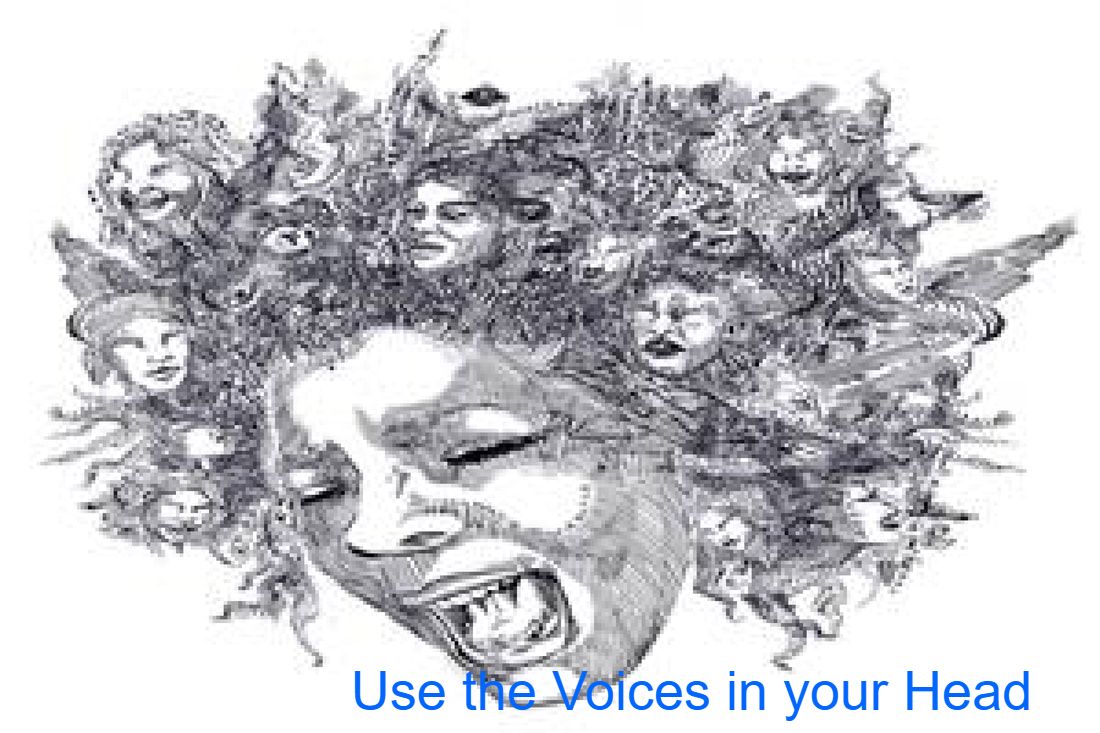
Have you ever felt like throwing your freshly blended non-fat, organic caramel, unsweetened, mock-choc at a random person in your local Starbucks, for no apparent reason? Just a weird funny unexplainable urge that came up? Naturally, good manners and the idea of forfeiting the seventeen dollars and sixty-four cents remaining of the gift card your sister bought you prevents this—but did you ever feel like it, or something like it?
How about the time that alpha Brentwood producer dude was backing up his Lexus RX in the Spago parking lot and you knew damn well he was going to nick the car behind him, and you allowed it, giggling all the way back to your very pre-owned Prius?
These are what I call the little devils—we all have them, it is only human, but we do ask ourselves…where did that come from? It came from inside your head but more specifically, the programming and belief systems you learned from ages zero till now. This is where all of the “voices” come from.
This is also where our self-doubt stems from. Any writer, actor, or artist in this industry worth their salt damn well better have a healthy amount of self-doubt to contend with by now, it just comes with the territory. In fact, most film schools require this as a prerequisite for entry, it is the first question on the student application form.
Self-doubt, the voice of that critical inner parent that looms inside of us just when it is time to really take the risk and go for it is quite a formidable obstacle, a major cause of self-sabotage. The general advice is don’t listen to these voices—ward them off, tell yourself you got this, ignore them, binge-watch Curb Your Enthusiasm. I will agree with that for the most part, but I’ll also suggest that you use these voices to inform your work.
But I want to go deeper here, I want to go bleaker, I want to go Donny Darko, Wild at Heart, Joker. These films, and many like them, with their cool takes on the mental and the psychological that are injected into characters, came from inside the writer’s head, from inside the writer’s psyche. This is where we want to go.
So, what if you could create characters from the darkest parts of you? The parts that are so deliciously wrong and bring up sides of you that exist, but you don’t want to admit to? This is what a lot of writers do naturally as we are working from our subconscious, but how much more could we glean if, instead of repressing them we actually went down into the depths of our psyche and got to know these parts of ourselves, made friends, accepted them and said “let’s go folks, you’re on”?
Yeah, I’m going to go Jungian on you here. I love going Jungian. In fact, I have a picture of Carl Jung inside my hallway closet and the inscription under it reads. “what are you not looking for that is in here?” I love going Jungian as it opens up the whole barrel of apples and gets right to the hidden rotten ones down at the bottom. Those crushed, buggy, smelly ones, that brown goo between the slats in the side of the wood. The apples that nobody wants to eat or even look at yet are always turning up no matter how many times you throw them away.
How about the time that alpha Brentwood producer dude was backing up his Lexus RX in the Spago parking lot and you knew damn well he was going to nick the car behind him, and you allowed it, giggling all the way back to your very pre-owned Prius?
These are what I call the little devils—we all have them, it is only human, but we do ask ourselves…where did that come from? It came from inside your head but more specifically, the programming and belief systems you learned from ages zero till now. This is where all of the “voices” come from.
This is also where our self-doubt stems from. Any writer, actor, or artist in this industry worth their salt damn well better have a healthy amount of self-doubt to contend with by now, it just comes with the territory. In fact, most film schools require this as a prerequisite for entry, it is the first question on the student application form.
Self-doubt, the voice of that critical inner parent that looms inside of us just when it is time to really take the risk and go for it is quite a formidable obstacle, a major cause of self-sabotage. The general advice is don’t listen to these voices—ward them off, tell yourself you got this, ignore them, binge-watch Curb Your Enthusiasm. I will agree with that for the most part, but I’ll also suggest that you use these voices to inform your work.
But I want to go deeper here, I want to go bleaker, I want to go Donny Darko, Wild at Heart, Joker. These films, and many like them, with their cool takes on the mental and the psychological that are injected into characters, came from inside the writer’s head, from inside the writer’s psyche. This is where we want to go.
So, what if you could create characters from the darkest parts of you? The parts that are so deliciously wrong and bring up sides of you that exist, but you don’t want to admit to? This is what a lot of writers do naturally as we are working from our subconscious, but how much more could we glean if, instead of repressing them we actually went down into the depths of our psyche and got to know these parts of ourselves, made friends, accepted them and said “let’s go folks, you’re on”?
Yeah, I’m going to go Jungian on you here. I love going Jungian. In fact, I have a picture of Carl Jung inside my hallway closet and the inscription under it reads. “what are you not looking for that is in here?” I love going Jungian as it opens up the whole barrel of apples and gets right to the hidden rotten ones down at the bottom. Those crushed, buggy, smelly ones, that brown goo between the slats in the side of the wood. The apples that nobody wants to eat or even look at yet are always turning up no matter how many times you throw them away.
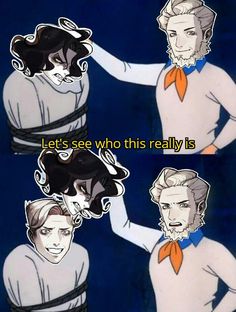
These are voices that lie deep within the shadow part of us, the part we do not want to look at or acknowledge, the part that comes out when we least want it to. This is story, character and narrative gold as it permeates all aspects of the world, tone, and genre of what we are writing and melds it all true because we already know it and are it.
These voices in our head are many and varied and like it or not they are also a part of who we truly are. They are sensational, sordid, twisted and beautifully dark. They come from hidden parts of our own personal pit, a great treasure trove for characters. They offer truthfulness, freshness and a never before seen reality that painting by the numbers could never come close to. They already are part of us so we know how they will speak, act, think and behave bringing a sometimes reckless but believable authenticity to every aspect of our screenplay or TV show.
The argument that is immediately made is, “heck, I don’t really need to do that. I can write looney characters, bent up zombies and crazies, anybody can, right? I don’t have to go down there.” Sure, if you want inauthentic, inconsistent, pot-boiling copies with cookie-cutter traits relying on fixed characterizations that never feel 100% real, living and breathing. To write a Donny Darko, Wild at Heart or Joker, you do have to go down there.
Oh, all right. How, do, I, get, down there…then? You acknowledge the seedier embarrassing and humiliating aspects of yourself and you welcome them. The sleazy, wretched even homicidal fantasies, the never spoke of weird desires—the nutty dreams you keep having about the middle-aged sales lady at K-Mart. Yes, K-mart because that is where you would never want to be seen. I am talking about our bigger, nastier and scarier demons. The ones we would never dare tell anybody about. The thoughts, feelings and distorted perceptions about our world that influence us in ways we could never act on but sometimes do? Our dark side. Are you ready to integrate these aspects of yourself? Are you willing to put that on the page?
This, IMHO, is particularly effective for writing antagonists, anti-heroes and very nuanced supporting characters or characters that are alter egos in some fashion. Makes sense as you wrote the protagonist, so you know who and what they are not. You also know their fears, wound and flaw as well as just who to pit them against to test this in human (or inhuman depending on the genre) form.
I’m not just talking about Jekyll and Hyde here, I am talking about Jekyll and I wish I could hide as this is the vulnerability that this digging, and then putting it on the page is going to take, but, the self-honesty will be well worth it. Show us who you think you’re not.
The Joker was simply misunderstood.
These voices in our head are many and varied and like it or not they are also a part of who we truly are. They are sensational, sordid, twisted and beautifully dark. They come from hidden parts of our own personal pit, a great treasure trove for characters. They offer truthfulness, freshness and a never before seen reality that painting by the numbers could never come close to. They already are part of us so we know how they will speak, act, think and behave bringing a sometimes reckless but believable authenticity to every aspect of our screenplay or TV show.
The argument that is immediately made is, “heck, I don’t really need to do that. I can write looney characters, bent up zombies and crazies, anybody can, right? I don’t have to go down there.” Sure, if you want inauthentic, inconsistent, pot-boiling copies with cookie-cutter traits relying on fixed characterizations that never feel 100% real, living and breathing. To write a Donny Darko, Wild at Heart or Joker, you do have to go down there.
Oh, all right. How, do, I, get, down there…then? You acknowledge the seedier embarrassing and humiliating aspects of yourself and you welcome them. The sleazy, wretched even homicidal fantasies, the never spoke of weird desires—the nutty dreams you keep having about the middle-aged sales lady at K-Mart. Yes, K-mart because that is where you would never want to be seen. I am talking about our bigger, nastier and scarier demons. The ones we would never dare tell anybody about. The thoughts, feelings and distorted perceptions about our world that influence us in ways we could never act on but sometimes do? Our dark side. Are you ready to integrate these aspects of yourself? Are you willing to put that on the page?
This, IMHO, is particularly effective for writing antagonists, anti-heroes and very nuanced supporting characters or characters that are alter egos in some fashion. Makes sense as you wrote the protagonist, so you know who and what they are not. You also know their fears, wound and flaw as well as just who to pit them against to test this in human (or inhuman depending on the genre) form.
I’m not just talking about Jekyll and Hyde here, I am talking about Jekyll and I wish I could hide as this is the vulnerability that this digging, and then putting it on the page is going to take, but, the self-honesty will be well worth it. Show us who you think you’re not.
The Joker was simply misunderstood.
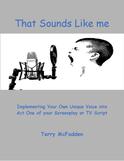
The writer's own unique voice is the most important thing you can bring to the page because it is who you truly are, it is your life experiences--it is how you see the world and it issues from a place that is totally your own. Everything else can be fixed.
One of the best buys and biggest bangs for not only voice but all elements of your screenplay or TV series idea is our “Detailed Script Analysis” service. Click the button to find out why.
One of the best buys and biggest bangs for not only voice but all elements of your screenplay or TV series idea is our “Detailed Script Analysis” service. Click the button to find out why.
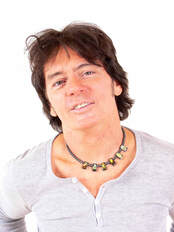
Let's talk about your script, story or project. We offer a free 30 minute phone consultation at no obligation.
Terry McFadden is an award-winning Script Doctor, Writing Coach and the founder of Story Builders Script Doctor and Writing Services. He is dedicated to helping TV Writers and Screenwriters find and hone their own unique voice.
Terry McFadden
Founder of Story Builders
(310) 927-9268
[email protected]
www.storybuilderswrite.com
https://twitter.com/Storybuilderz
https://www.linkedin.com/in/storybuilders/
https://www.facebook.com/storybuilderswrite/
Terry McFadden is an award-winning Script Doctor, Writing Coach and the founder of Story Builders Script Doctor and Writing Services. He is dedicated to helping TV Writers and Screenwriters find and hone their own unique voice.
Terry McFadden
Founder of Story Builders
(310) 927-9268
[email protected]
www.storybuilderswrite.com
https://twitter.com/Storybuilderz
https://www.linkedin.com/in/storybuilders/
https://www.facebook.com/storybuilderswrite/
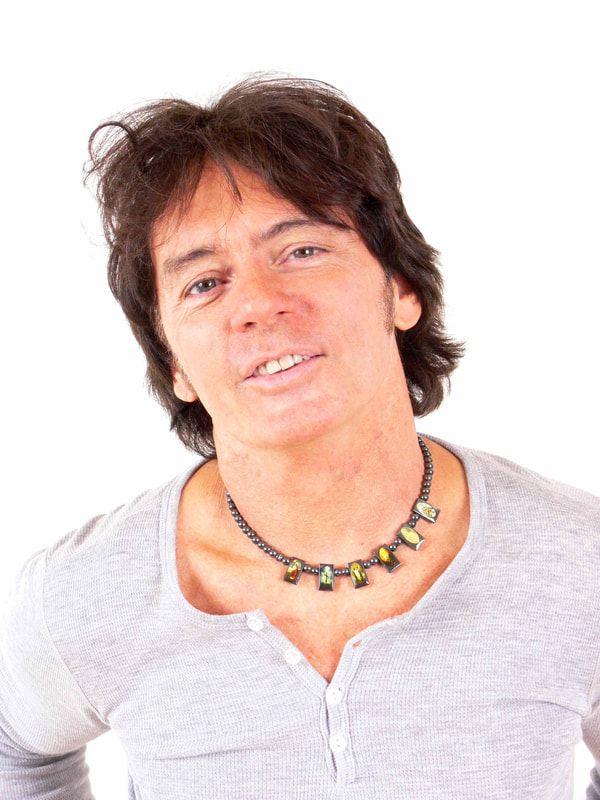
 RSS Feed
RSS Feed
